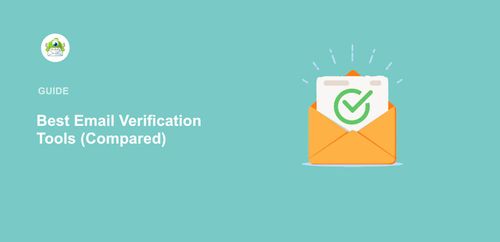In today's digital age, the accuracy and reliability of data are paramount. Whether you're a business seeking to improve customer interactions or an individual looking to ensure that your messages reach the right inbox, email verification web services play a crucial role. As an expert in the field, I'll guide you through the intricacies of email verification web services, provide insights into their significance, and help you harness their capabilities to elevate your data quality.
The Significance of Email Verification Web Services
Before we dive into the world of email verification web services, it's essential to understand why they matter:
Data Accuracy: Email verification web services ensure that your email lists are accurate and up-to-date, reducing bounce rates and enhancing your sender reputation.
Cost Savings: By eliminating invalid or disposable email addresses from your lists, you save on email delivery costs and avoid sending messages to non-existent recipients.
Compliance: Maintaining clean email lists helps you comply with data protection regulations and avoid penalties associated with sending emails to incorrect or unauthorized recipients.
Enhanced Communication: Clean data enables you to reach your intended audience effectively, leading to improved engagement and better communication outcomes.
Exploring Email Verification Web Services
Now, let's delve into the world of email verification web services and explore some of the top options available:
1. Hunter Email Verifier:
- Hunter offers a powerful and user-friendly email verification web service. It verifies email addresses in real-time, providing you with accurate results.
- You can integrate Hunter's API into your applications or use their web interface for batch verification.
2. Amazon Simple Email Service (SES):
- Amazon SES is a cloud-based email service that includes email verification as part of its features. It allows you to verify email addresses and domains to enhance email deliverability.
- SES is a versatile solution that can be integrated with various AWS services.
3. ZeroBounce:
- ZeroBounce offers a comprehensive email verification web service with features like email scoring and list appending.
- It provides real-time verification and bulk email verification options, catering to different needs.
4. NeverBounce:
- NeverBounce specializes in real-time email verification and list cleaning. It offers a REST API for easy integration into your applications.
- Their service is known for its accuracy and speed in verifying email addresses.
5. BriteVerify:
- BriteVerify offers real-time email verification services to enhance the quality of your email lists.
- It's designed to integrate seamlessly with popular email marketing platforms.
Implementing Email Verification Web Services
Now that you're familiar with some of the top email verification web services, let's discuss how to implement them effectively:
1. Choose the Right Service:
- Select an email verification web service that aligns with your specific needs, whether it's real-time verification, bulk verification, or additional features like email scoring.
2. Data Preparation:
- Before using the service, ensure that your data is well-prepared. Remove duplicates and format your email lists correctly.
3. Integration:
- Integrate the chosen email verification web service into your applications or workflow. Most services offer APIs for seamless integration.
4. Verification Process:
- Follow the service's documentation to verify email addresses. Typically, you'll make API calls or upload lists for verification.
5. Handling Results:
- Pay attention to the results provided by the service. Most services categorize email addresses as valid, invalid, disposable, or catch-all. Take appropriate action based on the results.
Common Questions About Email Verification Web Services
Q1. How does email verification improve email deliverability?
A1. Email verification removes invalid and inactive email addresses from your lists, reducing bounce rates. This, in turn, enhances your sender reputation and email deliverability.
Q2. Can email verification web services identify disposable email addresses?
A2. Yes, many email verification services can identify disposable email addresses and flag them as such.
Q3. Is real-time verification better than bulk verification?
A3. The choice between real-time and bulk verification depends on your needs. Real-time verification is suitable for immediate validation, while bulk verification is efficient for cleaning large lists.
Q4. How often should I verify my email lists?
A4. It's advisable to verify your email lists regularly to ensure data accuracy. The frequency depends on the rate of data change and your email marketing schedule.
Q5. Are there free email verification services available?
A5. While some email verification services offer free trials or limited free usage, comprehensive and accurate verification often comes with a cost. Free services may not provide the same level of accuracy.
In conclusion, email verification web services are indispensable tools for businesses and individuals seeking to maintain clean and reliable email lists. By understanding their significance, exploring the top options available, and following best practices for implementation, you can harness the power of email verification web services to enhance your data quality and communication effectiveness.



